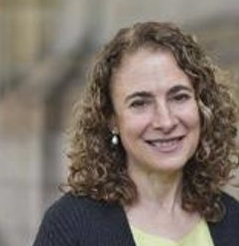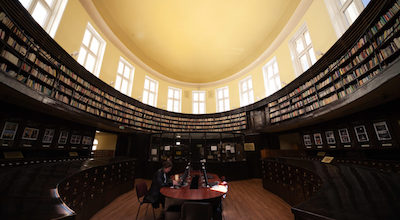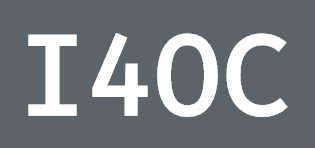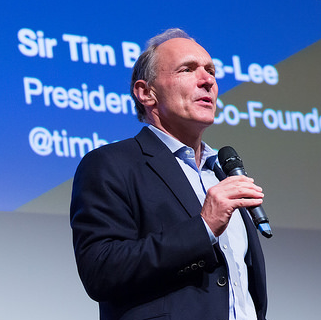News Clips
How U.S. Health Care Became Big Business
 Health care is a trillion-dollar industry in America, but are we getting what we pay for? Dr. Elisabeth Rosenthal, a medical journalist who formerly worked as a medical doctor, warns that the existing system too often focuses on financial incentives over health or science. "We've trusted a lot of our health care to for-profit businesses and it's their job, frankly, to make profit," Rosenthal says. "You can't expect them to act like Mother Teresas"...
Health care is a trillion-dollar industry in America, but are we getting what we pay for? Dr. Elisabeth Rosenthal, a medical journalist who formerly worked as a medical doctor, warns that the existing system too often focuses on financial incentives over health or science. "We've trusted a lot of our health care to for-profit businesses and it's their job, frankly, to make profit," Rosenthal says. "You can't expect them to act like Mother Teresas"...
- Login to post comments
Colorado’s Direct Primary Care Bill: A Better Way to Pay for Healthcare?
Coloradans frustrated with the high costs of primary healthcare, take heed: A bill to protect a lower-cost model heads today to the state House floor after passing committee in both chambers. Fed up with the administrative burdens of “fee-for-service” insurance billing, family doctors across the country increasingly are turning to a payment model called direct primary care, in which patients and their primary care physicians enter into payment agreements that eliminate the middleman of traditional insurance...
- Login to post comments
Doctors Demand Extreme EHR Makeover ... Right Now
 Just about every week or so there’s a new report chronicling doctors’ frustrations with electronic health records. Drill down a bit and the source of discontent becomes clear: poor usability, clunky interfaces, ineffective search and too many clicks. So what would actually make doctors like their EHR? “They need a tremendous makeover with lots of clinical input to make it easy to do not only the right thing, but the things you do all the time,” said Robert Wachter, MD, a professor of medicine at the University of California, San Francisco.
Just about every week or so there’s a new report chronicling doctors’ frustrations with electronic health records. Drill down a bit and the source of discontent becomes clear: poor usability, clunky interfaces, ineffective search and too many clicks. So what would actually make doctors like their EHR? “They need a tremendous makeover with lots of clinical input to make it easy to do not only the right thing, but the things you do all the time,” said Robert Wachter, MD, a professor of medicine at the University of California, San Francisco.
- Login to post comments
Data From 14 Million Papers Is Now Available for Free
 The Initiative of Open Citations (140C) announced today that science papers’ reference lists will now be accessible to anyone. As explained on their website, “citations are the links that knit together our scientific and cultural knowledge. They are primary data that provide both provenance and an explanation for how we know facts. They allow us to attribute and credit scientific contributions, and they enable the evaluation of research and its impacts. In sum, citations are the most important vehicle for the discovery, dissemination, and evaluation of all scholarly knowledge”...
The Initiative of Open Citations (140C) announced today that science papers’ reference lists will now be accessible to anyone. As explained on their website, “citations are the links that knit together our scientific and cultural knowledge. They are primary data that provide both provenance and an explanation for how we know facts. They allow us to attribute and credit scientific contributions, and they enable the evaluation of research and its impacts. In sum, citations are the most important vehicle for the discovery, dissemination, and evaluation of all scholarly knowledge”...
- Login to post comments
CMS’ Accountable Health Communities Model Selects 32 Participants to Serve as Local ‘Hubs’ Linking Clinical and Community Services
 Last year, the Centers for Medicare & Medicaid Services (CMS) released a Funding Opportunity Announcement (FOA) for applications for the Center for Medicare and Medicaid Innovation’s (Innovation Center) Accountable Health Communities (AHC) model. Over a five-year period, CMS will implement and test the three-track AHC model to support local communities in addressing the health-related social needs of Medicare and Medicaid beneficiaries by bridging the gap between clinical and community service providers...
Last year, the Centers for Medicare & Medicaid Services (CMS) released a Funding Opportunity Announcement (FOA) for applications for the Center for Medicare and Medicaid Innovation’s (Innovation Center) Accountable Health Communities (AHC) model. Over a five-year period, CMS will implement and test the three-track AHC model to support local communities in addressing the health-related social needs of Medicare and Medicaid beneficiaries by bridging the gap between clinical and community service providers...
- Login to post comments
NIH to Bring Precision Medicine Data Collection to Patient Homes
Thousands of volunteers for the All of Us precision medicine cohort won’t even have to leave the comfort of their living rooms when contributing data to the project thanks to a new NIH collaboration with mobile medical service EMSI. The All of Us program, formally known as the Precision Medicine Initiative (PMI) Cohort, aims to collect biosamples from at least one million patients to fuel big data analytics and personalized medicine research...
- Login to post comments
i2b2 Foundation and tranSMART Foundation Announce Intent to Merge
 The two leading open-source foundations (The tranSMART Foundation and the i2b2 Foundation) in the healthcare and translational research space are merging into a single foundation to advance the field of precision medicine. These organizations provide open-source software and databases representing more than 100 million patient lives to thousands of physicians and scientists worldwide...
The two leading open-source foundations (The tranSMART Foundation and the i2b2 Foundation) in the healthcare and translational research space are merging into a single foundation to advance the field of precision medicine. These organizations provide open-source software and databases representing more than 100 million patient lives to thousands of physicians and scientists worldwide...
- Login to post comments
It’s Time for Open Citations
 Today, Mozilla is announcing support for the Initiative for Open Citations (I4OC), an effort to make citation data from scholarly publications open and freely accessible. We’re proud to stand alongside the Wikimedia Foundation, the Public Library of Science and a network of other like-minded institutions, publishers and researchers who believe knowledge should be free from restrictions. We want to create a global, public web of citation data — one that empowers teaching, learning, innovation and progress. Read More »
Today, Mozilla is announcing support for the Initiative for Open Citations (I4OC), an effort to make citation data from scholarly publications open and freely accessible. We’re proud to stand alongside the Wikimedia Foundation, the Public Library of Science and a network of other like-minded institutions, publishers and researchers who believe knowledge should be free from restrictions. We want to create a global, public web of citation data — one that empowers teaching, learning, innovation and progress. Read More »
- Login to post comments
How Flawed Science Is Undermining Good Medicine
A surprising medical finding caught the eye of NPR's veteran science correspondent Richard Harris in 2014. A scientist from the drug company Amgen had reviewed the results of 53 studies that were originally thought to be highly promising — findings likely to lead to important new drugs. But when the Amgen scientist tried to replicate those promising results, in most cases he couldn't...
- Login to post comments
EHRs Eating Up Half of Doctors’ Workday, and They Are Not Getting Paid for It
Doctors spend about half of their EHR time during patient encounters, according to new findings published in Health Affairs. The other half is consumed by desktop medicine tasks for which they do not get reimbursed... Researchers looked at data captured by electronic health records time-stamp functionality 31 million EHR transactions conducted between 2011-2014 by 471 primary care physicians and 765,129 patient records to measure how doctors spend their time....
- Login to post comments
One Hour Flu Test Developed by Scientists in Move That Could Tackle Antibiotic Resistance
Scientists have developed a test which can diagnose flu in one hour, in a move which could speed up access to the right treatment and tackle antibiotic resistance. The instant swab tests, invented at University Hospital Southampton Foundation trust, mean specific viruses can be isolated, and given the right treatment, within 60 minutes. Currently such processses take almost a week, meaning thousands of patients are needlessly given antibiotics, fuelling spiralling drug resistance...
- Login to post comments
EMSI to Support Sample Collection for the National Institutes of Health's All of Us Research Program
 EMSI, a medical information service provider mobilizing networks of technology-enabled health professionals and trained phlebotomists, will engage thousands of direct volunteers in their homes for the ambitious All of Us Research Program, a historic medical research effort led by the National Institutes of Health (NIH)...Precision medicine is an approach to disease treatment and prevention that takes into account individual variability in environment, lifestyle and genes. The All of Us Research Program, which is part of the Precision Medicine Initiative, will lay the foundation for using this approach in clinical practice...
EMSI, a medical information service provider mobilizing networks of technology-enabled health professionals and trained phlebotomists, will engage thousands of direct volunteers in their homes for the ambitious All of Us Research Program, a historic medical research effort led by the National Institutes of Health (NIH)...Precision medicine is an approach to disease treatment and prevention that takes into account individual variability in environment, lifestyle and genes. The All of Us Research Program, which is part of the Precision Medicine Initiative, will lay the foundation for using this approach in clinical practice...
- Login to post comments
Cognitive Medical Systems Named to Deloitte Technology Fast 500TM List for Second Straight Year
 Cognitive Medical Systems, a specialist in standards-based Clinical Decision Support (CDS) software and healthcare IT infrastructure, today announced it ranked 35th on Deloitte’s Technology Fast 500™, a ranking of the 500 fastest growing technology, media, telecommunications, life sciences and energy tech companies in North America, for the second straight year. The company grew nearly 3,000 percent since 2012...
Cognitive Medical Systems, a specialist in standards-based Clinical Decision Support (CDS) software and healthcare IT infrastructure, today announced it ranked 35th on Deloitte’s Technology Fast 500™, a ranking of the 500 fastest growing technology, media, telecommunications, life sciences and energy tech companies in North America, for the second straight year. The company grew nearly 3,000 percent since 2012...
- Login to post comments
New Paper from American Medical Informatics Association Details How to ‘Cross the Health IT Chasm’
 The American Medical Informatics Association (AMIA) held a briefing today on Capitol Hill to unveil the findings and recommendations from a new paper, detailing ways that policymakers should focus on liberating data for patients, improving interoperability for clinicians, and enhancing the capacity for research and innovation to impact patient care. The paper, “Crossing the Health IT Chasm: Considerations and Policy Recommendations to Overcome Current Challenges and Enable Value-based Care,” is published in the Journal of the American Medical Informatics Association (JAMIA) in tandem with the briefing...
The American Medical Informatics Association (AMIA) held a briefing today on Capitol Hill to unveil the findings and recommendations from a new paper, detailing ways that policymakers should focus on liberating data for patients, improving interoperability for clinicians, and enhancing the capacity for research and innovation to impact patient care. The paper, “Crossing the Health IT Chasm: Considerations and Policy Recommendations to Overcome Current Challenges and Enable Value-based Care,” is published in the Journal of the American Medical Informatics Association (JAMIA) in tandem with the briefing...
- Login to post comments
Tim Berners-Lee, Inventor of the Web, Plots a Radical Overhaul of His Creation
 Thirteen years ago the Queen of England dubbed Tim Berners-Lee, the creator of the worldwide web, a Knight Commander of the Order of the British Empire. Today he received what in the tech world counts as a much higher distinction: a Turing Award. The prestigious prize, presented each year by the Association for Computing Machinery, amounts to the Nobel Prize of computing and comes with a million dollars. Berners-Lee received the award for creating the technology that underpins the web 28 years ago. But he sees his creation as the work of countless other people—and believes that work is far from over...
Thirteen years ago the Queen of England dubbed Tim Berners-Lee, the creator of the worldwide web, a Knight Commander of the Order of the British Empire. Today he received what in the tech world counts as a much higher distinction: a Turing Award. The prestigious prize, presented each year by the Association for Computing Machinery, amounts to the Nobel Prize of computing and comes with a million dollars. Berners-Lee received the award for creating the technology that underpins the web 28 years ago. But he sees his creation as the work of countless other people—and believes that work is far from over...
- Login to post comments